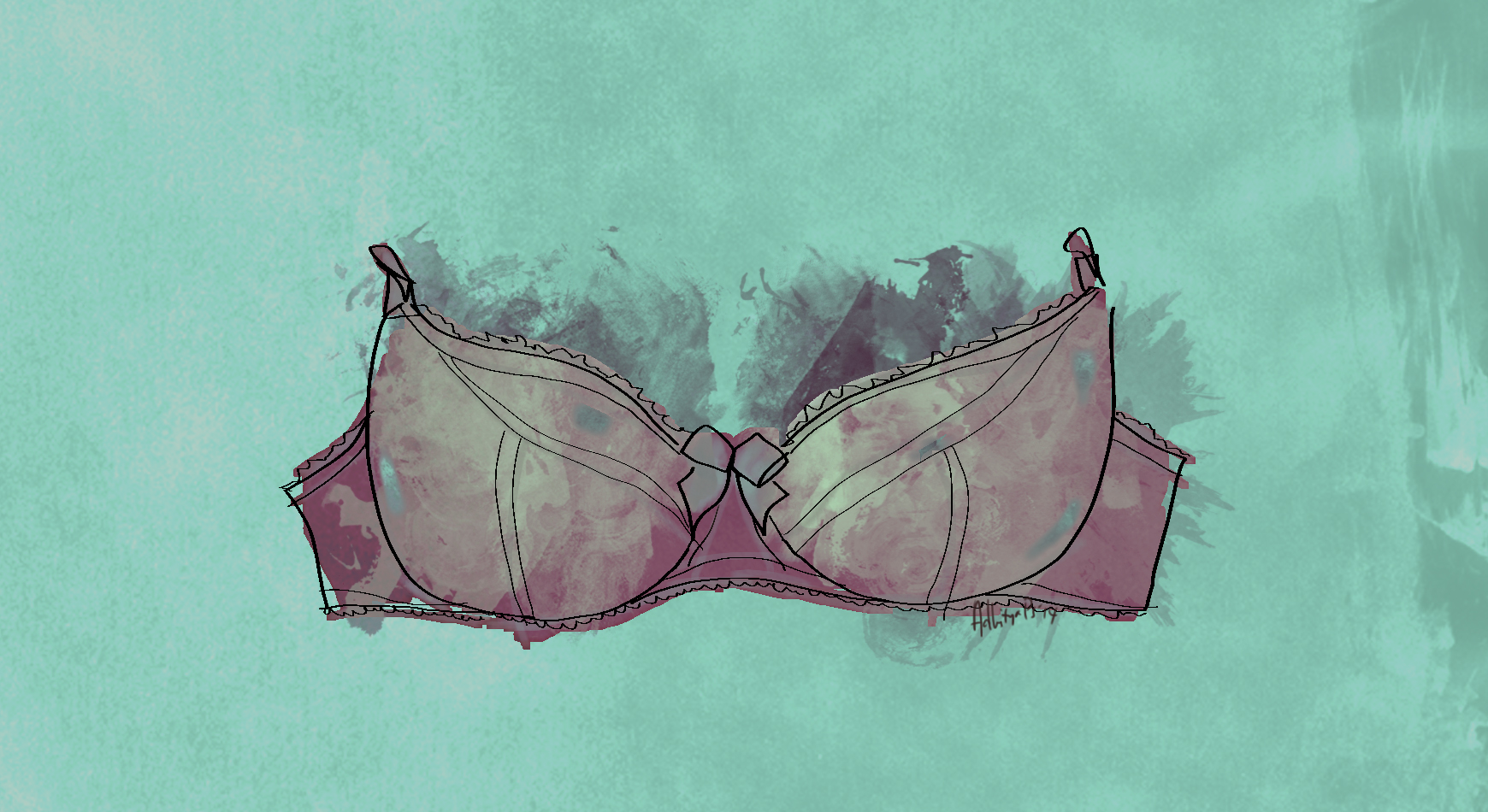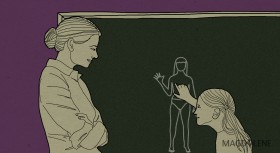Dear flat-chested sisters,
Years ago, when a teacher at my school taught about puberty for girls, I was told that I would grow breasts. To this day my breasts have not developed to the shape taught by my teacher. A grown woman, today my chest remains as flat as ever, a pair of underdeveloped breasts, “micro peas,” “mosquito bite.” Whatever.
Having a flat chest means a constant struggle when buying a pair of bras. You don’t really know the size of your breasts, so you look for the smallest size, though you’re not even sure your breasts can fill the cup space. The right place to find the cups for your peas is usually the training bras at kids’ section. The plus point: they have much cuter design.
As a teenager, I found out that everyone’s favorite topic for jokes was small boobs. I can still remember clearly when someone told me it was natural for people to mistake me for a boy because of my flat chest. Or when some girls laughed at my breasts behind my back. Or how my teacher mocked my friend’s flat chest in front of everyone and made it a routine joke before he started teaching – until that friend cried one day in class. Even then, he never apologized to her.
I had a constant fear of becoming the next subject of mock. The boobs topic amplified my insecurities; I felt less of a woman because of my small breasts.
But why should the size of a woman’s breasts define her quality as a woman. This also made me think: why do people only talk about fat and skinny labels when they talk about body positivity movement? Why don't people ever talk about small breast and the shaming of flat-chested women?
While being haunted by those questions, I stumbled upon the figure of the late Eleanor Roosevelt. She stood for human rights and social justice issues, including equal rights for women and African-American workers. She enabled African American signer Marian Anderson to sing at the Lincoln Memorial, after Anderson’s initial plan to sing at Constitution Hall in Washington, D.C. was rejected because of her race. She took many trips to listen to people stories and made sure that the sufferings of the Americans were heard by her husband President Franklin Roosevelt. Please note that Franklin cheated on her, but she stayed in the marriage and changed her romantic relationship with Franklin into a formidable partnership that embraced social and political issues. And this came from a woman who supposedly had a low self-esteem.
When I read about Eleanor, for some reasons I felt something familiar rising in me. I realized that the pictures of women who show their strength in the middle of hardships were everywhere around me all this time, and they had helped me navigate my own struggle. There are Kartini, the mothers in Kamisan movement, Rosa Parks, Hellen Keller, Malala Yousafzai, and even our own mothers. The size of their breasts had nothing to do with the impact they made in their lives and the legacies they left thereafter.
There may be many answers to the question of how to define a woman. But I stop at this one: that to be a woman is to have the strength to face whatever struggles she faces in life, and to pursue whatever dreams she has.
My respect goes to every kind of body shape, but I don’t think I will let the size of breasts that is considered “adequate” by society define what it means to be a woman, or lessen my self-respect and love for my small breasts.
Anyway, dear all flat-chested women out there, you have probably realized there are so many advantages to having small breasts, but if you still want to change your body, it is your own choice. Whichever choice you make, though, I hope you will never ever be ashamed of the body you were born with.







Comments